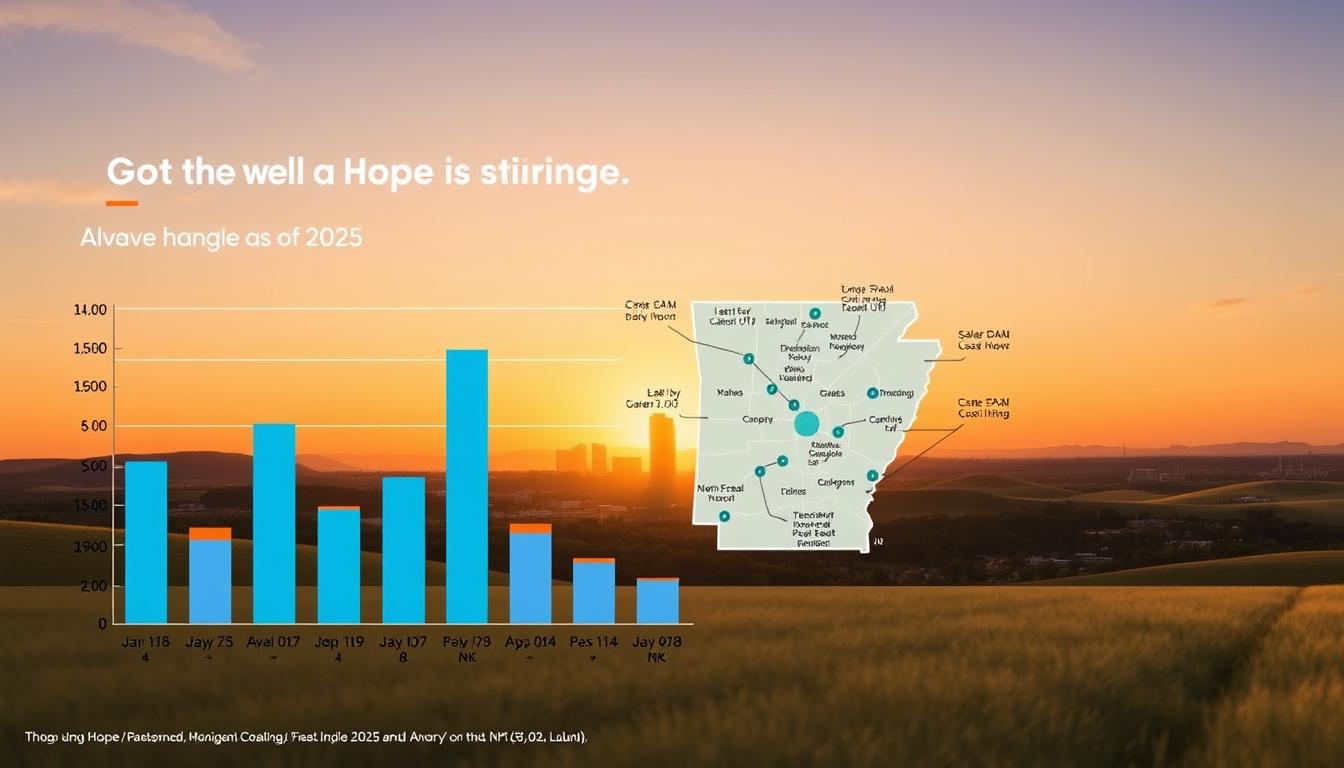Did you know that 73% of professionals who get career counseling find their dream job in six months? This amazing fact shows how career advice can change your life in today’s tough job market.
Career counseling is more than just giving advice. It’s about finding the right path for you, based on your skills and what you love. Experts help you see the best job opportunities and avoid mistakes that can slow you down.
The YMCA has been leading in career services in Canada for over 75 years. They use special tools to help you make smart choices about your career.
RoboApply mixes old-school counseling with new AI tech. You get top-notch career development services like making your resume better, practicing for interviews, and using cool app tools. This makes your job search easier, from finding out what you want to do to getting job offers.
Getting career advice can really speed up your career. You’ll know what you want and how to reach your goals in today’s fast-paced job world.
Key Takeaways
- 73% of professionals with career counseling land ideal positions within six months
- Professional guidance provides personalized strategies based on individual strengths and market opportunities
- Career counseling differs from generic advice by offering tailored solutions for each person
- RoboApply combines traditional counseling with AI-powered tools for comprehensive support
- Investment in professional career guidance helps avoid common pitfalls and accelerates success
- Modern platforms offer end-to-end solutions from self-discovery to landing offers
Understanding Job Search Consultation
Professional job search assistance offers the help you need in today’s job market. It’s more than just resume tips. It’s about getting strategic advice that fits your career path. You get expert advice that can really boost your job search.
This service turns a tough job search into a step-by-step plan. Professional consultants use their experience and methods to help you reach your career goals faster than going it alone.
What is Job Search Consultation?
Job search consultation is a service that gives you personal career advice during your job search. You work one-on-one with a consultant. They look at your skills, experience, and goals to find the right job for you.
The first step is a career assessment. Your consultant looks at your skills and goals. This helps them suggest the best strategies for you.
Next, they do a market analysis. They study your target industries and salary ranges. They find companies that need people like you and tell you about market trends.
Then, they help you plan your job applications. They create a plan with application timelines and where to apply. They might use tools like RoboApply to make applying easier.
They also support you throughout your job search. Regular meetings keep you on track and motivated. This support keeps you focused and productive.
Benefits of Job Search Consultation
Professional career counseling offers big advantages for your job search. It’s more than just searching on your own.
One big plus is finding a job faster. Consultants help you avoid mistakes that slow you down. Their strategies can cut your job search time in half.
They also teach you how to negotiate better. You learn how to research salaries and negotiate. This can lead to higher salary offers.
They prepare you for interviews too. They practice with you, give feedback, and help you tell your story. This builds your confidence and reduces stress.
They also open doors to hidden job markets. Consultants have networks and connections. They can introduce you to jobs before they’re advertised online.
| Consultation Aspect | Traditional Job Search | Professional Consultation | Key Advantage |
|---|---|---|---|
| Application Strategy | Generic applications | Targeted, customized approach | Higher response rates |
| Market Knowledge | Limited industry insight | Comprehensive market analysis | Better opportunity identification |
| Interview Preparation | Self-guided practice | Professional coaching sessions | Increased confidence and performance |
| Networking Support | Personal connections only | Professional network access | Expanded opportunity pipeline |
Getting personal feedback and improving is key to job search consultation. Your consultant gives you honest feedback. This helps you improve and avoid mistakes.
They also help reduce stress and keep you motivated. They know the emotional side of job searching. Their support keeps you positive and moving forward.
The Role of Career Counselors
Career counselors are key partners in your professional growth. They offer expert advice and support tailored to you. These experts help you tackle career hurdles and achieve your goals. They provide more than just job search help.
They use special tools and methods to get to know you. They help you find your strengths, understand your values, and explore careers that match your dreams. Career counseling is crucial with professionals who give you a fresh view of your path.

How They Can Guide Your Journey
Career counselors act as your personal career planners. They guide you through career changes and help you make smart choices. They also help you find skills that open doors to new fields.
They keep you on track with your career goals. They help you set goals, monitor your progress, and adjust your plan when needed. They also share insights from the industry that you might not find on your own.
Today, career counseling uses new tech tools. RoboApply’s AI helps with career coaching 24/7. It offers tools like a resume builder and interview coach to boost your success.
“A good career counselor doesn’t just help you find a job; they help you build a career that aligns with your values and long-term goals.”
Essential Skills of a Career Counselor
When choosing a career counselor, look for certain skills and qualifications. The best counselors have both education and real-world experience in career development.
| Essential Skill | Why It Matters | What to Look For |
|---|---|---|
| Professional Certification | Ensures standardized training and ethical practices | National Career Development Association (NCDA) certification |
| Assessment Expertise | Provides accurate insights into your strengths and interests | Experience with validated career assessment tools |
| Industry Knowledge | Offers relevant market insights and trends | Current understanding of job market dynamics |
| Communication Skills | Facilitates clear guidance and actionable advice | Active listening and clear explanation abilities |
Good career counselors also have strong analytical skills. They can make sense of career data and turn it into steps you can take. Look for counselors who keep up with the latest in industries and careers.
The best counselors mix old-school methods with new tech. They know how to use tools like RoboApply’s job tracker to improve your job search. This mix of human touch and AI tools offers a full approach to career growth.
Identifying Your Career Goals
Exploring your career path requires understanding your strengths, interests, and goals. Knowing what you want to achieve is key to a successful career. This involves self-assessment and setting clear goals.
Vocational guidance starts with knowing yourself. Understanding your abilities, values, and interests helps you choose the right career. This knowledge helps you avoid mistakes and find long-term fulfillment.
Conducting Self-Assessments
Self-assessment is the first step in career planning. It helps you identify your strengths, weaknesses, and preferences. Career assessments provide a framework to understand your professional profile and find suitable careers.
Several tools can help with career exploration. The Myers-Briggs Type Indicator shows your personality and work preferences. It helps you decide if you work better alone or with others.
The Holland Codes categorize your interests into six types. Each type matches specific careers. For example, if you’re social, you might do well in counseling or teaching.
The Strong Interest Inventory compares your interests to various careers. It shows which jobs match your preferences and energize you.
Job Bank offers six quizzes to discover your interests and skills. These quizzes cover values, interests, skills, and more. They’re free and help you find your professional fit.
| Assessment Type | Focus Area | Best For | Time Required |
|---|---|---|---|
| Myers-Briggs Type Indicator | Personality preferences | Understanding work style | 15-20 minutes |
| Holland Codes | Interest categories | Career field matching | 10-15 minutes |
| Strong Interest Inventory | Interest comparison | Detailed career exploration | 25-30 minutes |
| Values Assessment | Work values | Job satisfaction factors | 10-12 minutes |
When looking at your assessment results, look for patterns. If different assessments point to the same career, it’s a good sign. It means you’re a good fit for that field.
For example, Sarah found she liked social work and teamwork. Her assessments showed she’d be great in counseling or human resources.
Setting SMART Goals
After self-assessment, turn your insights into specific goals. SMART goals help you make a plan from your career exploration findings.
SMART goals are Specific, Measurable, Achievable, Relevant, and Time-bound. This makes your goals clear and reachable.
Specific goals clearly state what you aim to achieve. Instead of “I want a better job,” say “I want to be a marketing coordinator in healthcare.” This focus helps you find the right job.
Measurable goals track your progress. You might aim to apply to 15 jobs in two months or have three informational interviews.
Achievable goals match your current skills and experience. If you’re moving from sales to marketing, aiming for a coordinator role is realistic.
Relevant goals align with your career vision and assessment results. They should support your long-term goals and values.
Time-bound goals have deadlines to keep you on track. Set both short-term and long-term goals to stay motivated and focused.
Here’s a SMART goal example: “In four months, I’ll move from sales to marketing in healthcare. I’ll get a digital marketing certification, network with five professionals, and apply to 20 jobs.”
Your career goals should change as you gain experience. Regularly review your goals to keep them aligned with your interests and the job market. Schedule quarterly reviews to check your progress and adjust your goals as needed.
Crafting an Effective Resume
A well-crafted resume can open doors to new opportunities. It’s your first chance to impress potential employers. Professional resume writing means using the right words and format to grab attention.
Today’s job market is competitive. Your resume must pass through Applicant Tracking Systems (ATS) before a human sees it. Knowing how to navigate these systems is key.
Key Elements of a Winning Resume
A winning resume has key parts that tell your story. These elements make your resume easy to read and visually appealing.
The Professional Summary Section is like an elevator pitch. It should highlight your most important skills and achievements. It’s your chance to grab the reader’s attention.
“Your professional summary should answer the question: Why should we hire you? Make every word count in this critical real estate.”
Organizing your skills is crucial. List both hard and soft skills. Use tools like RoboApply’s AI resume builder to suggest relevant skills for your job target.
When listing your work experience, use bullet points and action verbs. Quantify your achievements to show impact. For example, instead of saying “Managed team,” say “Led a team of 12, increasing project completion rates by 25%.”
Here’s an example of effective work experience formatting:
Marketing Manager | ABC Company | 2020-2023
• Developed integrated marketing campaigns that increased brand awareness by 40% within 18 months
• Managed $500K annual marketing budget, consistently delivering projects 15% under budget
• Collaborated with sales team to generate 200+ qualified leads monthly through digital initiatives
Where you place your education and certifications depends on your career stage. Recent graduates should list education first, while experienced professionals list it after work experience. Include relevant certifications and continuing education that support your career goals.
Adding sections like volunteer work or publications can make your resume stand out. These sections show your commitment to your field and well-roundedness.
Tailoring Your Resume for Specific Jobs
Generic resumes don’t cut it in today’s job market. Tailoring your resume for each job increases your chances of getting an interview. This targeted approach shows you’re serious about the role.
Start by analyzing the job description. Identify key requirements and company values. Use these to create a list of keywords and phrases to include in your resume.
RoboApply’s ATS optimizer helps you tailor your resume. It suggests changes to improve your resume’s compatibility with specific jobs. This tool helps you identify areas for improvement.
Integrate keywords naturally into your resume. Avoid stuffing them in, as this looks unnatural. Use relevant terms in your professional summary, skills section, and work experience descriptions.
Highlight achievements that match the job requirements. For example, if applying for a sales role, focus on revenue generation and client acquisition. For project management, highlight your ability to manage timelines and budgets.
Consider this tailoring example for a data analyst position:
Original: “Worked with data to support business decisions”
Tailored: “Analyzed customer behavior data using SQL and Python, identifying trends that informed strategic decisions and increased customer retention by 18%”
Formatting your resume differently for different industries is important. Creative fields may allow for more visual elements, while corporate environments prefer a more conservative look. Research industry standards to adjust your resume’s appearance.
Aligning your resume with the company culture is key. Research the company’s values and work environment. Use language and examples that show you fit the company’s culture, along with your technical skills.
Professional resume writing services stress the importance of customization. Tools like RoboApply make this easier by allowing you to maintain multiple resume versions. This efficiency helps you apply to more jobs while keeping your resume relevant.
Remember, writing a good resume is an ongoing process. Regularly update your resume to reflect new skills and achievements. This keeps you ready for new opportunities.
The grammar checker in RoboApply helps keep your resume professional. It identifies errors and suggests improvements. A clean, error-free resume shows attention to detail and professionalism.
Preparing for Job Interviews
Getting ready for job interviews is key. Interview coaching helps you show your best. It’s about answering questions well and looking confident.
Interviews are like conversations. You need to be ready for anything. The right approach turns nervousness into energy that shows your skills.

Common Interview Questions to Expect
Most interviews ask similar questions. Knowing these helps you prepare answers that show your value. Use proven ways to share your experience.
The STAR method is great for answering behavioral questions. It helps you structure your answers with Situation, Task, Action, and Result.
- Situation: Set the context for your example
- Task: Explain what needed to be accomplished
- Action: Describe the specific steps you took
- Result: Share the positive outcome you achieved
For example, if asked about overcoming a challenge:
“In my previous role, our team faced a deadline when our main vendor canceled our order (Situation). I had to find an alternative supplier in 48 hours to keep the project on track (Task). I contacted five backup vendors, negotiated with them, and got approval for an emergency order (Action). We met the deadline, and the client was so impressed they extended our contract (Result).”
Prepare answers for common questions:
- Strengths and weaknesses: Pick real strengths that match the job
- Career gaps: Talk about what you did during unemployment
- Salary expectations: Know the market rate and offer a range
- Why you want this job: Connect your goals with the company’s mission
Practice your answers until they feel natural. But don’t memorize them. Your answers should be conversational and cover all important points. Check out this guide for more tips on handling tough questions.
Strategies for Building Confidence
Building confidence comes from preparation and mental tricks. Many people struggle with interviews because they lack the right mindset. Confidence comes from both being well-prepared and mentally strong.
Preparation strategies are key to confidence:
- Research the company well, including recent news
- Practice answering questions with friends or family
- Prepare thoughtful questions for the interviewer
- Plan your route to the interview
Visualization helps you mentally prepare for interviews. Spend 10 minutes a day imagining yourself answering questions confidently. This reduces anxiety and boosts your performance.
Body language shows confidence before you speak. Keep good posture, make eye contact, and use gestures. Practice these in mock interviews to feel natural.
Professional interview coaching offers personalized feedback. Career counselors help you improve by focusing on specific areas. They also help you change habits that hurt your confidence.
RoboApply’s interview coach feature gives you access to top-level tools. This platform offers:
- Industry-specific questions tailored to your field
- Personalized practice sessions with feedback
- Video recording to review your performance
- Tracking to see your progress
See interviews as chances to learn, not tests. This mindset reduces stress and helps you connect with interviewers.
Have a pre-interview routine to calm your nerves. This could be deep breathing, affirmations, or reviewing your achievements. Consistent routines help you feel confident.
Some nervousness is okay and can even help. It shows you care and can focus better. The goal is to use that energy well.
Networking Strategies for Job Seekers
Networking can open doors to jobs you never see on job boards. It’s key to building professional relationships. These connections help you find hidden job opportunities and grow your career.
Good networking is more than just collecting cards or LinkedIn friends. It’s about making real connections with people who can help you in your career.
Importance of Networking in Job Search
In Canada, many jobs are never advertised but are found through word-of-mouth. This hidden job market is a big part of the job world. You can only find these jobs through networking.
Networking offers many benefits:
- Access to unadvertised positions – Many employers hire through referrals before they post jobs
- Insider information – Your network can give you insights into company culture and hiring processes
- Professional credibility – Referrals from people you know are more valuable than just applying
- Mentorship opportunities – Experienced people can guide your career and offer advice
Networking helps you build a strong professional reputation. When jobs come up, people think of you because you’re well-known in your field.
Your network is a source of ongoing career development services. They offer support and insights that help you stay ahead in your field.
Utilizing Social Media for Networking
Social media has changed how we network, making it easier to connect with leaders and employers. LinkedIn is the top platform for professional networking, but Twitter and others are also useful.
LinkedIn optimization strategies include:
- Complete your profile thoroughly – Make sure it’s detailed and includes keywords
- Share valuable content regularly – Post insights and engage in discussions
- Join relevant groups – Connect with others in your field
- Send personalized connection requests – Explain why you want to connect
Twitter is great for following leaders and joining conversations. Share your thoughts and engage with others in your field.
Effective networking needs organization and consistency. RoboApply’s outreach CRM feature helps you keep track of contacts and stay in touch. It makes sure you don’t miss out on important connections.
Good networking is about giving as well as getting. Help others, share opportunities, and build relationships that help everyone grow.
Job Search Strategies
Having a solid job search strategy is key in today’s competitive job market. It’s about using different methods to find the right job for you. Getting help from job search assistance experts can make your search more effective.
Today, you need to be good at both online job searching and networking. Success comes from knowing when to apply online and when to reach out personally. It’s all about finding the right balance and tracking your progress well.

Online Job Boards vs. Traditional Methods
Online job boards are convenient and offer many job opportunities. But, they also mean lots of competition. They do give you insights into the job market and what salaries are like.
Advantages of online job boards include:
- 24/7 access to new opportunities
- Advanced filtering and search capabilities
- Automated application tracking systems
- Salary and company research tools
RoboApply is a great tool for job searching. It has a Chrome extension that fills out applications for you. This saves a lot of time and helps you apply to many jobs quickly.
Networking and reaching out to companies directly can lead to better job opportunities. These methods are less competitive because not many people use them. Building relationships is key to finding a job.
Traditional methods that deliver results:
- Professional networking events and industry conferences
- Direct outreach to hiring managers and recruiters
- Alumni networks and professional associations
- Informational interviews with industry professionals
The best strategy is to use both online and traditional methods. Online platforms help you find jobs and learn about companies. Then, use traditional methods to make personal connections. This way, you get noticed and build important professional relationships.
Creating a Job Search Plan
Having a job search plan is like having a map to your next job. Start by setting daily and weekly goals for applying, networking, and learning new skills. Job placement services suggest spending 6-8 hours a day on job searching when you’re not working.
Use a system to track your job search. RoboApply’s job tracker helps you keep up with applications, interviews, and follow-ups. This helps you avoid missing opportunities and see what’s working for you.
Essential components of your job search plan:
- Daily application targets (5-10 quality applications)
- Weekly networking goals (3-5 new connections)
- Skills development schedule (2-3 hours weekly)
- Interview preparation time blocks
- Progress review and strategy adjustment periods
Managing your time is crucial during your job search. Set aside specific times for different tasks. Mornings are best for applying when you’re most focused. Use afternoons for networking and research.
Keep track of your progress to improve your strategy. Look at how many applications lead to interviews, how job boards respond, and how well your networking works. Professional job search assistance can help you understand these metrics and adjust your plan.
Set realistic goals based on your experience and the job market. Entry-level jobs might take 3-6 months to find, while senior roles could take 6-12 months. Remember to consider holidays and busy hiring times in your plan.
Regularly review your strategy to stay motivated and on track. Have weekly check-ins to see how you’re doing, celebrate your successes, and make changes if needed. This approach makes job searching more manageable and goal-oriented.
Overcoming Job Search Challenges
Today’s job market is tough, but you’re not alone. Career counseling gives you the support to stay confident and keep moving forward.
Job searching can be emotionally tough. But with the right mindset and tools, you can turn these challenges into chances for growth. Job search assistance helps you build resilience and skills for a lasting career.

Dealing with Rejection
Rejection is part of every job search. View it as a chance to learn, not a failure.
Look for feedback in each rejection. Ask for specific insights from hiring managers. This helps you improve for the next time.
Remember, rejection often means you’re not the right fit, not that you’re not good enough. Companies want candidates who match their needs and culture. A “no” from one place means you’re closer to finding the right one.
Develop a plan to bounce back fast. Set aside 24 hours to process disappointment, then move on to the next opportunity. This keeps you moving forward without getting stuck on setbacks.
Keep track of your progress to stay motivated. Record your applications, interviews, and skills learned. These metrics show you’re making progress, even when it feels slow.
Managing Stress During Your Search
Job searching can be stressful. It’s important to manage this stress to stay productive and healthy.
Make time for both job searching and personal life. Set aside specific hours for job search activities and then take a break. This helps prevent burnout and keeps you productive.
Find stress-reduction methods that fit your life. Try deep breathing, exercise, or mindfulness to help manage stress during tough times.
Be realistic about your search timeline and goals. Understand that market conditions and industry trends affect hiring. Knowing this can help you stay calm and focused.
Celebrate your small wins. Completing applications, getting interviews, and growing your network are all important steps. Acknowledging these achievements keeps you motivated.
Use professional resources to reduce stress. Platforms and resources can guide you and make your search more structured.
Seeking help is smart, not weak. Career counseling professionals offer valuable insights and strategies to help you succeed while easing the emotional burden.
Continuous Career Development
Your career journey doesn’t stop when you get a new job. Today’s job market is always changing. To succeed, you must keep learning and growing your skills.
Importance of Lifelong Learning
Most people don’t stay in one job forever. So, it’s key to keep improving your skills. Career exploration resources help you find what you need to learn.
Make a plan for your learning. This could include school, certifications, online courses, and conferences. This way, you stay ahead and find new chances for growth.
Seeking Ongoing Support from Counselors
Keeping in touch with career counselors and mentors is important. They guide you as your goals change. They help you move forward and find new chances.
Surround yourself with people who support your career. RoboApply is your partner for career growth. They keep you updated and help you grow throughout your career.
FAQ
What is career counseling and how does it differ from generic job search advice?
Career counseling is a personalized approach to professional growth. It goes beyond simple job search tips. It offers tailored solutions based on your strengths, interests, and market opportunities.
Unlike generic advice, career counseling provides strategies that match your specific goals and industry needs.
How can job search consultation accelerate my career success?
Job search consultation offers structured support. This includes career assessment, market analysis, and application strategy development.
It also provides ongoing guidance. This approach can lead to faster job placement and better salary negotiations. It also improves your interview performance and gives you access to hidden job markets.
What qualifications should I look for in a career counselor?
Look for career counselors with relevant certifications and industry experience. They should be skilled in assessment and have strong communication abilities.
They should also know your target industry well. They should be able to provide objective advice and help you set goals.
How do I identify my career goals effectively?
Start by doing a self-assessment. Use personality tests, skills inventories, and values exercises to understand your strengths and interests.
Then, turn these insights into SMART goals. These goals should align with market opportunities. Career assessment tools can give you instant analysis and personalized advice.
What are the key elements of a winning resume?
A winning resume has a compelling professional summary and a skills section. It highlights your achievements with specific results.
Include your education and any additional sections that add value. Each bullet point should tell a story of success and value creation.
How should I tailor my resume for specific job applications?
Analyze each job description to find key requirements and keywords. Then, customize your resume content to match the position and company culture.
ATS optimization is crucial. Make sure your resume includes industry-specific keywords and formatting that passes through applicant tracking systems.
What are the most common interview questions I should prepare for?
Common interview questions include “Tell me about yourself,” “Why do you want this position,” and “What are your strengths and weaknesses.”
Also, be ready to describe a challenging situation you overcame and where you see yourself in five years. Use the STAR method to structure your answers with specific examples.
How can I build confidence for job interviews?
Build confidence through thorough preparation and practice. Prepare compelling stories about your achievements and research the company and role extensively.
Use visualization techniques and maintain positive body language. Turn nervous energy into enthusiasm. Interview coaching can provide personalized feedback and industry-specific preparation.
Why is networking important in job searching?
Networking gives you access to the hidden job market. It leads to referrals and insider information about opportunities.
It helps build your professional reputation and establishes you as a knowledgeable professional. This often results in higher-quality opportunities with less competition.
How can I effectively use social media for professional networking?
Optimize your LinkedIn profile with relevant keywords and professional content. Engage in industry discussions and share valuable insights to establish thought leadership.
Connect strategically with industry professionals and participate in relevant groups. Use Twitter and other platforms to follow industry leaders and join professional conversations.
Should I focus on online job boards or traditional job search methods?
Use a balanced approach combining both methods. Online job boards provide access to numerous opportunities but create more competition.
Traditional methods like networking and direct company outreach often yield higher-quality connections with less competition. Job placement services and recruitment agencies can also provide access to exclusive opportunities.
How do I create an effective job search plan?
Develop a structured approach with specific goals and time management strategies. Set daily and weekly targets and prioritize high-value opportunities.
Use job search assistance tools to automate repetitive tasks and organize your applications. This allows you to focus on networking and interview preparation.
How should I handle job search rejection?
Reframe rejection as a learning opportunity and maintain a positive mindset. Analyze feedback to improve your approach and separate your self-worth from job search outcomes.
View each “no” as getting closer to the right “yes.” Use rejection as motivation to refine your strategy and remember that finding the right fit often requires persistence and resilience.
What strategies help manage job search stress?
Implement stress-reduction strategies like effective time management and regular self-care practices. Maintain work-life balance during your search.
Set realistic expectations, celebrate small wins, and maintain perspective during challenging periods. Vocational guidance professionals can provide emotional support and practical strategies for managing uncertainty and anxiety.
Why is continuous career development important?
Continuous career development ensures you stay competitive and adaptable in rapidly changing job markets. Regular skill development through formal education and certifications helps you advance in your career and opens new opportunities.
Lifelong learning demonstrates your commitment to growth and keeps your skills relevant to employer needs.
How can ongoing career counseling support benefit my long-term success?
Regular check-ins with career professionals help you navigate transitions and identify new opportunities. They provide accountability, market insights, and guidance for different career stages.
Building a support network of mentors, peers, and professional advisors ensures you have resources available when facing career decisions or challenges.
What role do career assessments play in professional development?
Career assessments provide insights into your personality traits, skills, interests, and values. They form the foundation for informed career decisions.
These tools help identify suitable career paths and reveal transferable skills. Regular assessments throughout your career can help you adapt to changing interests and market conditions while ensuring alignment between your goals and capabilities.
How can career exploration help me make better professional decisions?
Career exploration involves researching different industries, roles, and career paths. It helps you understand opportunities and requirements.
This process helps you make informed decisions about career transitions and identify emerging fields. Thorough exploration reduces the risk of career misalignment and helps you pursue paths that match your interests and market demand.


















